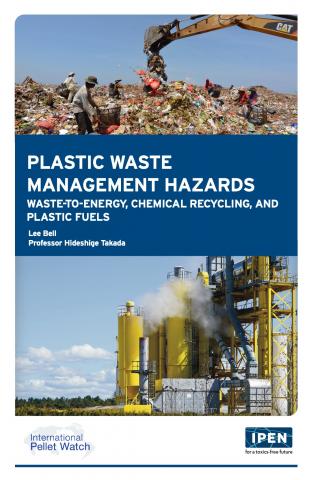
Gothenburg, Sweden Major investments in chemical recycling, plastic-to-fuel, and incineration to manage plastic waste is generating high volumes of highly hazardous waste and toxic emissions, according to a new report released today.
The report Plastic Waste Management Hazards is the first study providing a detailed account of how current investments in recycling schemes, both mechanical and chemical, will have very little impact on a growing, worldwide plastic pollution problem and will increase exposure to toxic chemicals in the communities where they are located.
Report co-author and IPEN POPs Policy Advisor, Lee Bell said, “No current management method for plastic waste is capable of alleviating the world’s expanding plastic pollution crisis. All methods generate significant toxic hazards because of the toxic additives that are a component of most plastic products. Industry’s championing of various recycling schemes is a marketing ploy designed to fend off plastic regulation and efforts to curb an escalating plastic pollution problem. The only solution to the plastic waste piling up in our communities and oceans is to limit plastic production to essential uses and eliminate the use of toxic chemicals in plastics.”
